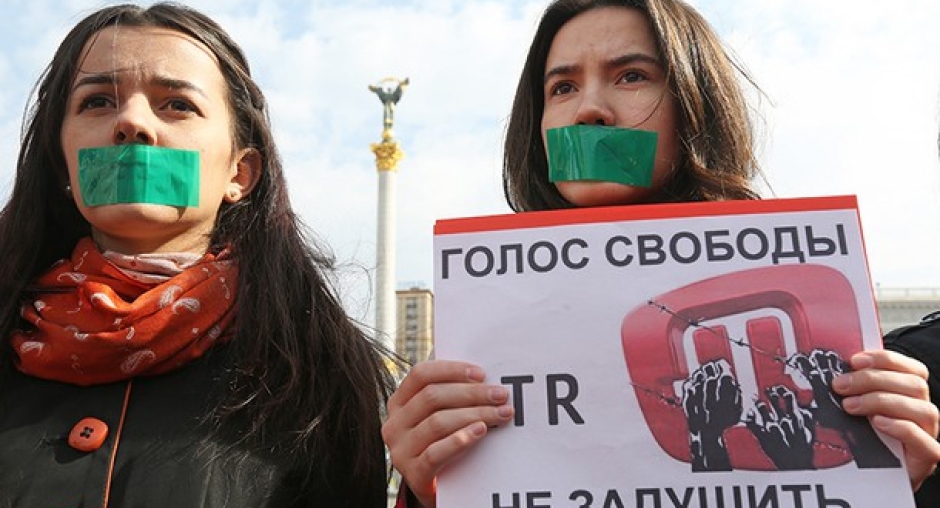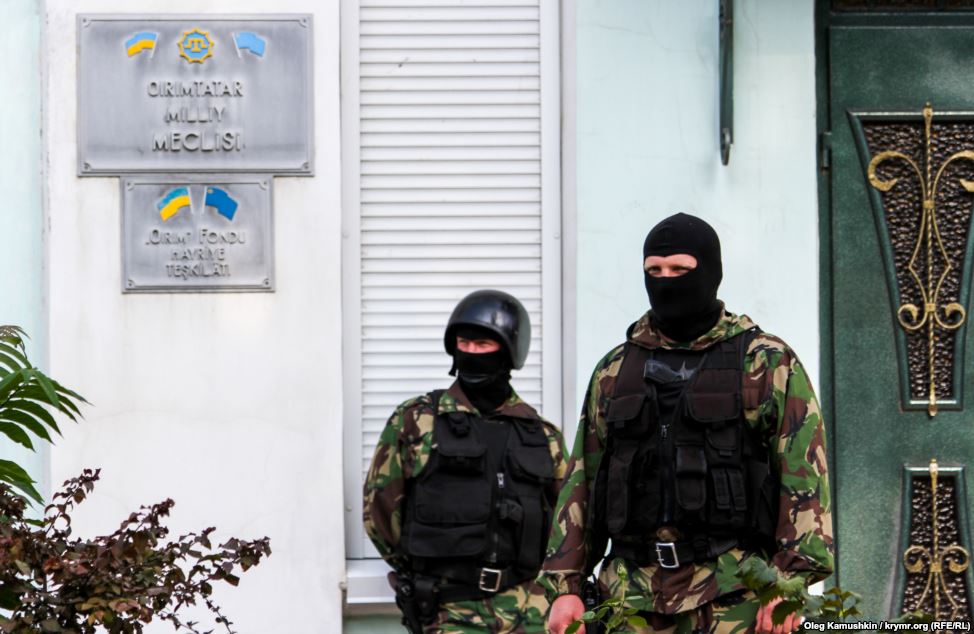Of the slightly more 3,000 media outlets in Crimea before the Anschluss, the Russian occupation authorities have reregistered and therefore allowed to continue to operate only 232. Hardest hit have been those in Crimean Tatar, there, the Russian officials have closed 11 out of 12.
Of the 232 with official permission to operate, the Russian government says, eight are Internet portals, 19 are TV channels, 42 are radio channels, 163 are print outlets and information agencies. Two hundred and seven had been registered by Ukrainian officials before the Anschluss, and 25 are Russian outlets which have moved in since that time.
In reporting this in today’s “Novyye izvestiya,” Yekaterina Dyatlovskaya notes that rights activists have already labelled these closures as “the de facto destruction of independent Crimean media” and a return to a Bolshevik approach to dealing with opposition news outlets.
The Committee for the Support of Independent Crimean Tatar Media issued a public appeal to Russian society calling on it to “do everything possible for the support of independent media.” Mikhail Fedotov, head of the Russian Human Rights Council, has appealed to Russian government offices to allow more outlets in Crimea to operate.
But Nikolay Svanidze, head of the Council’s working group on this issue, says that “at present, we cannot do anything more,” except to follow developments, adding that he doesn’t expect a favorable change given the comments Vladimir Putin’s press secretary Dmitry Peskov has made.
Moreover, senior Russian officials are digging in on this point. Foreign Minister Sergey Lavrov has declared that “no problems will arise with media registration” in Crimea as long as applicants follow Russian law, and Crimean head Sergey Aksyonov says that alternatives to Crimean Tatar ATR television will be created.
Svanidze says that “unfortunately, there are very serious problems in Crimea, especially with Crimean Tatar media. To a certain extent, they reflect the status of media as a whole throughout the country, but in Crimean the situation is still harsher.” Creating officially controlled media doesn’t serve anyone’s purposes, he says, “except” those of the authorities.
And Aleksey Simonov, president of the Glasnost Defense Foundation, adds that “the problem with freedom of speech in Crimea is absolutely the same as in the entire country” and recalls what happened after the Bolsheviks took power. Lenin’s party closed all the newspapers according to the principle “he who is not with us is against us.”





